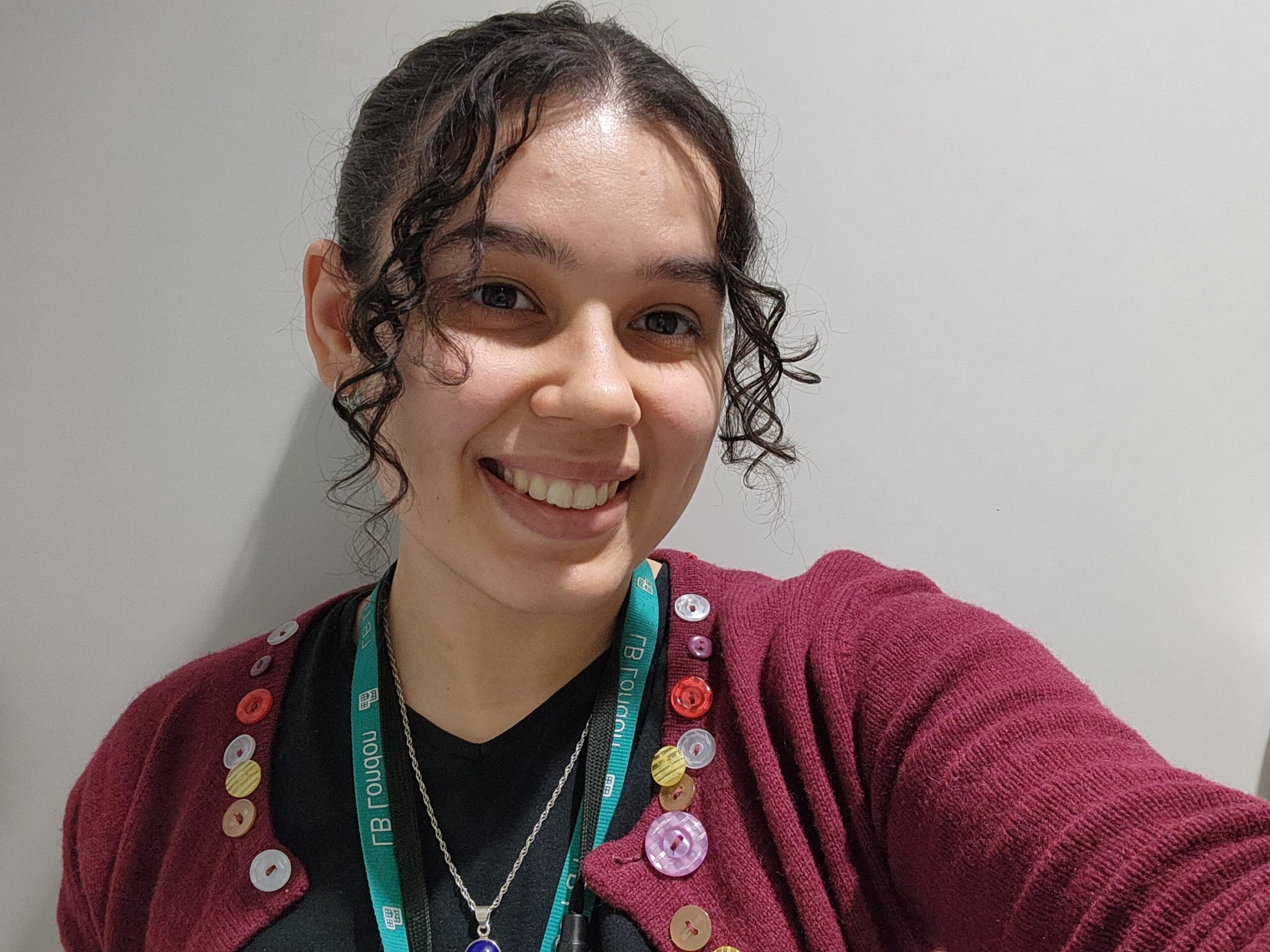Kyra joined the Tax Specialist Programme (TSP) in September 2022 with a bachelor’s in Comparative Literature (like an English Literature degree, but more interdisciplinary). In this blog, she reflects on how even though she came from a non-tax background, she’s successfully embraced the challenge, grown into her role and found confidence through varied work, strong support, and a healthy work-life balance.

Daily work and responsibilities
Can you walk us through a typical day or week in your role? What does your schedule actually look like?
During study periods, I study for and complete a tutorial for two days of the week, and work the other three days. In the breaks between the exams, I work five days a week.
Every week is quite different as I’m involved in a variety of work. A lot of the work I do revolves around analysing data and information, specifically in the Transfer Pricing space, which then informs correspondence with my customers and submissions to internal stakeholders. Being a Tax Specialist, I work collaboratively with other specialists on case teams. There is a healthy balance of team work and, in my role, independent work.
I have a variety of SPOC (Single Point of Contact) roles which keep me busy trying to reach HMRC’s strategic objectives. In my capacity in these roles, I’m often doing educational pieces such as presentations on new legislation, regulations or internal processes, or collaborating with other stakeholders on project work.
How has your role evolved since last year? What new responsibilities or projects have you taken on?
Since last year, I have gained more independence in my work. Initially on joining my assigned business area, I was paired up on case teams with other more experienced Tax Specialists which helped mentor me, as I had no prior experience in tax before joining the TSP. In the year since, I have become increasingly independent, often being the sole Tax Specialist dealing with my particular tax area on a case team as opposed to being paired up with another Specialist and expanded my workload to include the SPOC roles. The SPOC roles give me an opportunity to do more educational work and become involved in wider, national processes and projects.
How do you balance training sessions and exams with actual work responsibilities?
A lot of my time management for training/exams centres around using my Outlook calendar effectively. I make sure that I pre-plan any TSP related trainings or study time for exams and block out my calendar so that, at a glance, I know my work capacity. This is important as managing my workload properly allows me to set expectations within the case teams I work with.
How do you feel your confidence has grown since starting the programme?
My confidence has grown massively. As a person who came from a non-tax related background, on first starting the TSP I worried whether I would ever be able to ‘catch up’ with those who had been working in the tax space for a long time. However, in the short time being on the TSP, I recognise that I have acquired, and can apply with confidence and correctness, an array of technical know-how which I never would have thought possible when first starting out.
Challenges and surprises
What’s been the biggest surprise about the role compared to what you expected?
The variety of the work, and the variety of roles within the department, was something I didn’t know anything about on starting, but has been a really pleasant surprise. I love the variety in the work and how I am doing something different virtually every week. So many people within the department are working in such a wide range of different areas, whether that’s tax technical, policy and advisory, transformation/change and delivery or in some sort of management role and this really opens up the possibilities of what you can do in your time on the course and after it as well.
What aspects of the job do you find most challenging, and what aspects do you find most rewarding?
The aspects that I find most challenging are also those I find most rewarding. Data and information analysis can be hard, especially as every fact pattern is completely different. But, once I have a thorough understanding of the data and information, and can use that to draw conclusions, I always feel the most rewarded.
How did you manage the learning curve when you had no previous tax knowledge?
Each stage of the TSP builds on the previous stage. You start out learning the very basics of the tax system and how it works for different types of individuals or businesses, and then each successive module builds on that picture until you begin to learn about some of the more complex and technical elements of tax legislation or case law. It also extends beyond theory, as your work supplements the learning by giving you the opportunity to apply the knowledge in real life. This makes the learning process super manageable.
As you progress on the TSP, the key is to be self-motivated and interested enough to combine the formal aspects of the TSP with your own informal learning to give a more complete understanding of the topics and areas that come up within your work. Take transfer pricing for example, whilst this was covered on the TSP formal learning programme, I knew in encountering it in my work that I needed to dive deeper and so would set aside time to do just that, to give me the understanding (and confidence) I needed to complete my work to a high standard.
Work-life balance and culture
How would you describe the team culture and support you’ve received?
On joining the programme, there was a great spirit of team culture with the people that I joined with. Joining with a group is lovely, as you all start off at the same point and can navigate the programme together, which provides a well of support alongside the support you get from your manager on the programme.
I also have worked very closely with some of my fellow Tax Specialists and greatly benefitted from their mentorship. The team I’ve been assigned to was incredibly welcoming and really eager to help me grow my skills and knowledge by supporting me in the work I was undertaking or being a sounding-board off which I could launch my ideas and understanding of technical issues I was working on.
What’s the office atmosphere like?
Really nice! I have found everybody to be friendly and open, but ultimately very respectful of others. We have held quite a few mini events in the office over lunch time, for example to welcome new starters, which are always nice opportunities to get to know new people and to have a friendly catch-up with people you might not see or who work in a different team to yourself.
What opportunities have you had to get involved in HMRC’s social activities or volunteering initiatives?
I held a SPOC role from very early on the TSP called the Women’s Network, which was a network of women within the department. We would hold events mainly targeted at helping women build confidence in their professional life, but also events which we intended to help bring people closer together, for example forums where they could share and build solidarity over personal life events.
How do you find balancing the demands of training and work with your personal life?
I’ve found balancing work and my personal life really easy whilst on the TSP. Around exam times, I am the type to spend some of my personal time revising, but that’s just me! Aside from that, I find that work doesn’t eat into my personal life much at all – as long as I am holding myself accountable to deadlines (both personal and those set externally) I can always log off on a Friday and go into my weekend knowing that I can pick right up again on Monday.
Reflection and advice
If you could go back and speak to yourself before starting the programme, what would you say?
I would probably encourage myself to not be so nervous. Of course, being nervous at the start of anything new is completely natural, but my nerves were bordering on ‘imposter syndrome.’ I was worried that I had gotten myself involved in something I was not good at, and was doomed to making myself look silly for the next 3 to 4 years. But that was as untrue then as it is now. As mentioned, the TSP is the kind of programme where you aren’t expected to be the most accomplished, tax savvy person from the get go, so there is really no need to worry about being ‘good enough.’
What advice would you give to someone considering applying for the TSP based on your experience?
If you think you would be good at it, just apply. It can be daunting to apply for a programme which is in an area or industry you never considered working in before, or perhaps represents a significant step up from what you are working in currently. But, the structure of the TSP means that you’re given the time to allow your knowledge and skills to mature, with the support of genuinely kind and helpful colleagues the entire way through. Read the description of the course, and the kind of skills or person who is needed to complete the course, and if you think it sounds like you, apply!
Start a career that grows with you at HMRC
Join the Tax Specialist Programme and thrive in a work culture that celebrates your whole self.
Applications are now currently closed.
Start your HMRC journey today by looking at the vacancies we have available.
Discover more about what we do, our business areas and life at HMRC.
Ask our employees questions for an insight into what it’s like to work at HMRC.
Return to our Tax Specialist Programme page to read more.

